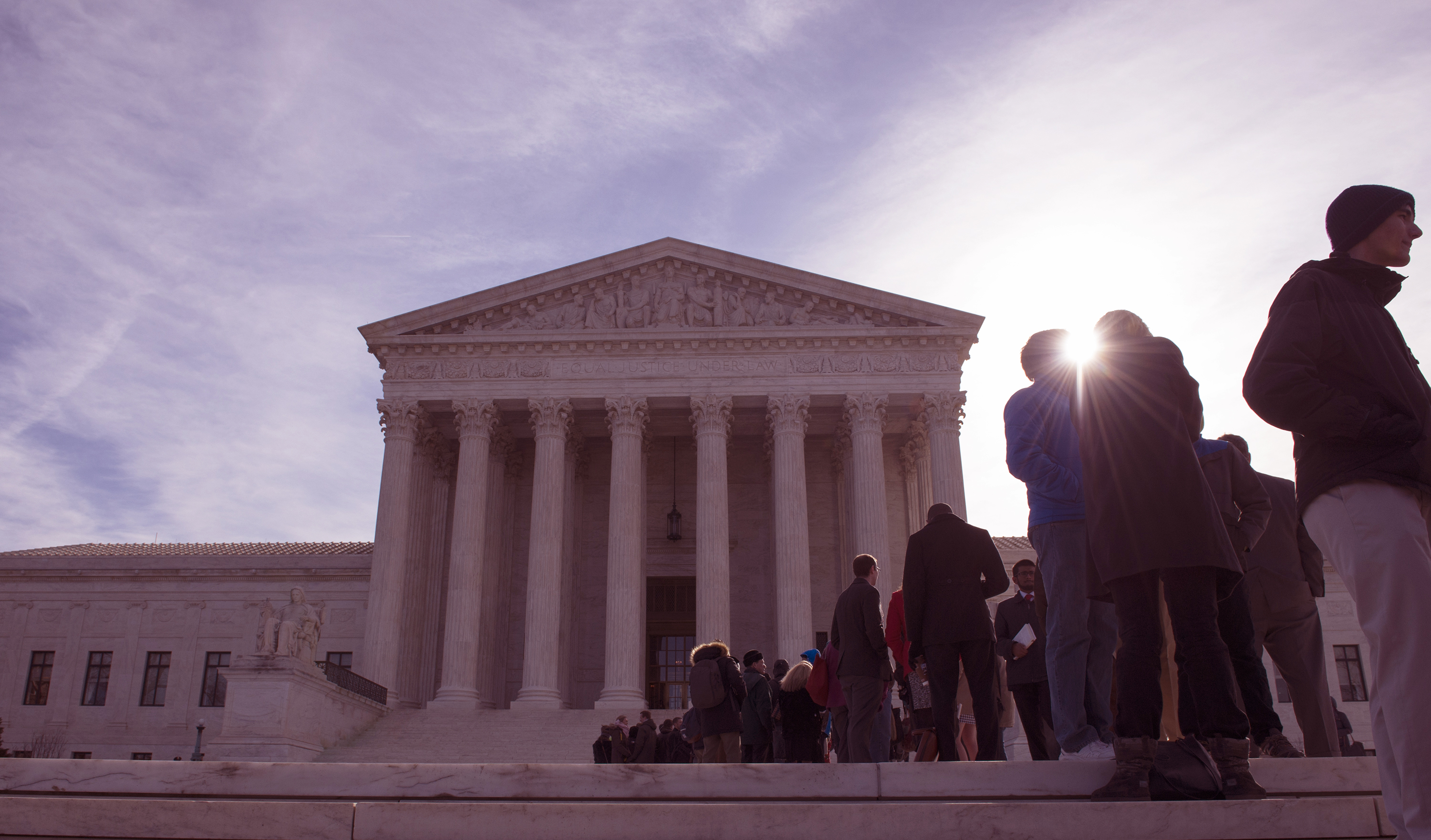For once, the Supreme Court sides with workers
The Roberts Court is famously hostile to employee rights. But it apparently draws the line at pregnant women.


The Roberts Court hasn't given liberals a great deal to be happy about, and this goes double where the civil rights of employees are concerned. But in a very important ruling handed down on Wednesday, the Supreme Court endorsed stronger protections for the rights of pregnant employees on a 6-3 vote.
The case, Young v. UPS, concerned a claim made under the Pregnancy Discrimination Act. Peggy Young, a UPS driver, was laid off during her pregnancy because she was unable to lift 70 pounds of packages, the minimum then required by the company. Her manager informed her that "she was too much of a liability" to either continue to work as a driver or be given an alternative assignment.
The consequences of this were serious: She eventually lost her health insurance before giving birth. Young also demonstrated that UPS accomodated several other employees with similar restrictions on their ability to lift heavy objects. Nonetheless, the Fourth Circuit Court of Appeals rejected her claim in a summary judgment.
The Week
Escape your echo chamber. Get the facts behind the news, plus analysis from multiple perspectives.

Sign up for The Week's Free Newsletters
From our morning news briefing to a weekly Good News Newsletter, get the best of The Week delivered directly to your inbox.
From our morning news briefing to a weekly Good News Newsletter, get the best of The Week delivered directly to your inbox.
The case turns on a dispute over the meaning of the Pregnancy Discrimination Act. The first clause of the statute defines discrimination based on pregnancy as sex discrimination. (This may seem too obvious to even need saying, but the Supreme Court had in fact ruled that discrimination based on pregnancy was not sex discrimination — apparently because the law applied to pregnant men and pregnant women alike.)
The murkier second clause requires that "women affected by pregnancy, childbirth, or related medical conditions shall be treated the same for all employment-related purposes...as other persons not so affected but similar in their ability or inability to work." What is required by this second clause is the crucial question in the case.
The argument made by UPS was essentially that the second clause did nothing more than reiterate the first, reaffirming that pregnancy discrimination is sex discrimination. As Justice Elena Kagan repeatedly said at oral argument, the claim that the second clause is entirely superfluous doesn't make any sense. Even Justice Samuel Alito — who, surprisingly, joined in the judgment although he did not sign the majority opinion — wrote in his concurrence that the second clause "does not merely explain but instead adds to the language that precedes it."
Writing for a majority of five justices, Justice Stephen Breyer also rejected this reading of the statute, finding that the second clause was obviously intended to do more than to "clarify" the already plain meaning of the first clause. "If the second clause of the Act did not exist," argued Breyer, "we would still say that an employer who disfavored pregnant women relative to other workers of similar ability or inability to work had engaged in pregnancy discrimination." Breyer also persuasively argued that this reading of the statute was inconsistent with the objectives Congress had in passing the law as previously determined by the court. Breyer was joined by the three other liberals on the bench and Chief Justice Roberts.
A free daily email with the biggest news stories of the day – and the best features from TheWeek.com
Breyer's opinion, however, was not quite an unequivocal triumph for Young. Young's argument was that if there was "evidence that pregnant and nonpregnant workers were not treated the same" then a pregnancy discrimination suit must prevail. Rather than adopting this reading, the majority staked out a middle ground.
Derived from the 1973 civil rights case McDonnell Douglas v. Green, the court argued that pregnant workers alleging discrimination must use a two-step approach. First, the burden of proof is on the employee to show that there is prima facie evidence of discrimination — that is, evidence sufficient to sustain a claim before the other side presents its case. If an employee can make this showing, the burden then shifts to the employer to show that it had a valid, neutral reason for treating the employee differently.
Based on this test, the majority rejected the Fourth Circuit's summary dismissal of Young's claim. Young was able to present at least some evidence that she was treated differently than other non-pregnant employees with similar limitations related to heavy lifting, and hence her case was dismissed prematurely. Justice Alito — not exactly a bleeding heart on employment discrimination cases — found that it "is not at all clear that respondent had any neutral business ground for treating pregnant drivers less favorably than at least some of its nonpregnant drivers who were reassigned to other jobs that they were physically capable of performing."
If there isn't a settlement, it will remain up to the lower courts to determine if she can prove her discrimination claim. But at least she will be allowed to make her case.
So while Young did not get the court to embrace the broadest interpretation of the statute, the decision must be considered a victory. "The court made clear that employers may not refuse to accommodate pregnant workers based on considerations of cost or convenience when they accommodate other workers," Samuel Bagenstos, the Michigan Law School professor who represented Young before the Supreme Court, told me. "It's a big step forward towards enforcing the principle that a woman shouldn't have to choose between her pregnancy and her job."
We still don't know if Peggy Young's strong case will ultimately prevail. But when the Roberts Court issues a ruling that sides with the workers and gives greater protection to women, it's a reason for both surprise and celebration.
Scott Lemieux is a professor of political science at the College of Saint Rose in Albany, N.Y., with a focus on the Supreme Court and constitutional law. He is a frequent contributor to the American Prospect and blogs for Lawyers, Guns and Money.
-
 Israel’s E1 zone in the West Bank: the death of the two-state solution?
Israel’s E1 zone in the West Bank: the death of the two-state solution?The Explainer Controversial new settlement in occupied territories makes future Palestinian state unviable, critics claim
-
 What the new Making Tax Digital rules mean
What the new Making Tax Digital rules meanThe Explainer A new system will be introduced from April to overhaul how untaxed income is reported to HMRC
-
 The former largest iceberg is turning blue. It’s a bad sign.
The former largest iceberg is turning blue. It’s a bad sign.Under the radar It is quickly melting away
